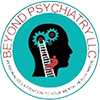Insomnia is a common sleep disorder characterized by difficulty falling asleep, staying asleep, or waking up too early and not being able to go back to sleep. It can lead to daytime fatigue, mood disturbances, and cognitive impairment, affecting overall quality of life.
Insomnia

INSOMNIA
Types of Insomnia
THERAPY PROCESS
Treatment for insomnia focuses on improving sleep quality and quantity through various approaches:
- Cognitive Behavioral Therapy for Insomnia (CBT-I):
- Cognitive Techniques: Addressing negative thoughts and beliefs about sleep.
- Behavioral Techniques: Developing healthy sleep habits and a conducive sleep environment.
- Medications:
- Prescription Sleep Aids: Such as benzodiazepines, non-benzodiazepine sedatives, and melatonin receptor agonists.
- Over-the-Counter Options: Including antihistamines and melatonin supplements.
- Lifestyle and Home Remedies:
- Sleep Hygiene: Maintaining a regular sleep schedule, creating a comfortable sleep environment, and avoiding stimulating activities before bedtime.
- Relaxation Techniques: Practicing meditation, deep breathing exercises, and progressive muscle relaxation.
- Physical Activity: Engaging in regular exercise during the day.
- Dietary Considerations: Avoiding large meals, caffeine, and alcohol close to bedtime.
